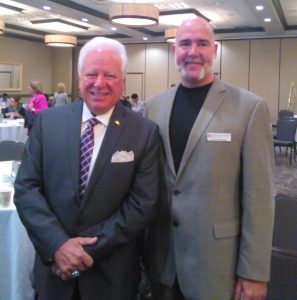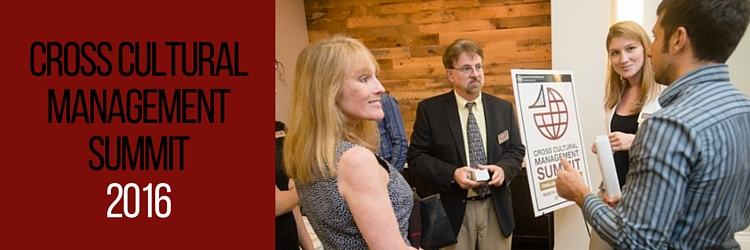College, Conferences and Culture
Every two years, Florida Institute of Technology hosts the International Cross Cultural Management Summit. ICCMS is a multi-disciplinary conference with the goal to solve pressing global challenges. This year ICCMS was hosten on February 18th through the 20th of 2016. By bringing together executives and academics from different parts of the world, the summit offers participants the opportunity to facilitate a discussion that generates innovative solutions to those challenges. This week, I’ll be talking about the various professionals that attended, what I learned the summit and why events like these are beneficial to students.
This year’s conference had three umbrella topics: Culture & Strategy, Global Leadership and Cross-Cultural Competence. Each of these topics had a specific aspect of it discussed by some of the best in those fields. These speakers included leading executives such as Stanley Litow, president of IBM’s International Foundation, and Sandy Harris, vice president of Corporate Diversity Strategy & Internal Operations at Sodexo. Leaders in academia such as Kristine Kawamura from St. Georges University and Florida Tech’s Richard Griffith, executive director of ICCMS, were present as well.
Offering her experience at ICCMS 2016 was Cynthia Nerangis, a specialist in cross-cultural consulting as well as the founder and president of LemonLime Consulting,
“The ICCMS included a well-rounded selection of presenters and participants focused on the dialogue around cross-cultural management. The kick-off training conducted by Dr. Fons Trompenaars was an excellent opportunity to reposition the way we tend to approach cultural strategy. I found the summit to be the best of its kind in focusing on the topics of global strategy and cross-cultural competence.”

To elaborate on the experience from the perspective of scholarly attendees is Ben Gomes-Casseres. Gomes-Casseres is a professor at Brandeis International Business School and is the author of “Remix Strategy,” a book on partnerships and mergers. Gomes-Casseres said, “The ICCM Summit was a gathering of the who’s who in cross-cultural management, at a beautiful location. The speakers bridged theory and practice effectively – the mark of useful research. I learned a lot!”
If I had to summarize what was learned at ICCMS 2016, this article would turn into a transcripted version of the weekend’s events. Instead, I can offer some of the most significant lessons I took away from ICCMS.
We actively participate in communication in some way everyday, whether it be through social media platforms such as Instagram or Twitter, business channels such as email or postage or traditional verbal communication. In all of these cases in today’s day and age, we cross many borders daily, including cultural ones. Different cultures have different ways of communicating. By opening ourselves up to learn about these communication styles, we can improve the quality of interactions with others.

Verbal and written communication is only a small portion of our interactions. A lot of it has to do with how we interact with each other. How we interact with others plays a significant role in our relationships with them. The old expression of “treat others as you wish to be treated” is still true to some extent, but in today’s multi-cultural environment, more often than not it is important to treat others as they wish to be treated.
What comes out of an interaction should be greater than the sums of its individual parts. When we bring together these lessons we will become more culturally and generally socially competent people capable of many incredible things.
These were three of the major lessons I took from the 2016 International Cross Cultural Management Summit. Professionals and academics both had the opportunity to take the best of what the other had to offer, in return for a better understanding on both ends. The summit came to a conclusion with smiles on the faces of the attendees and plenty of new relationships developed that quite literally span across the globe.





